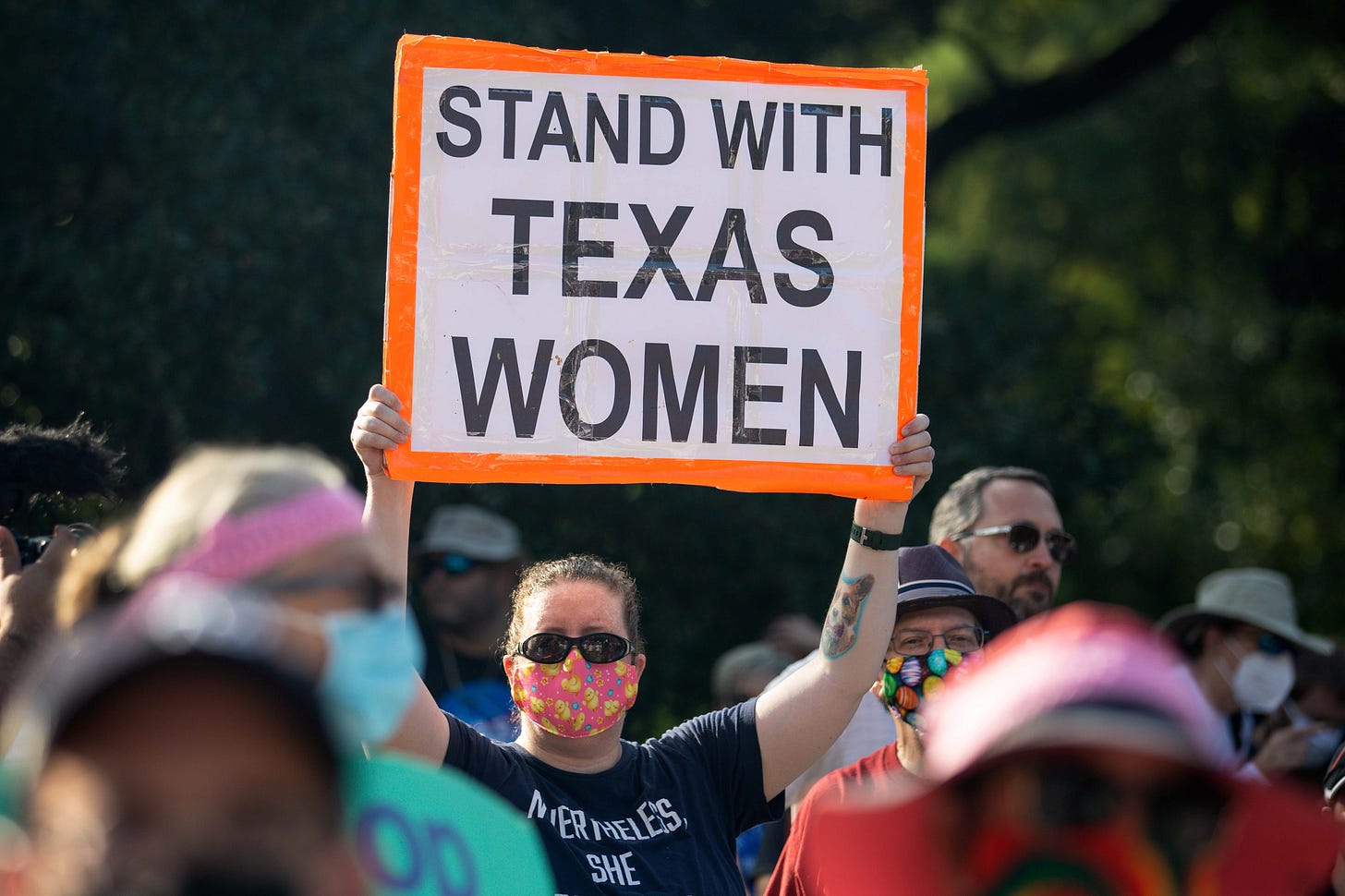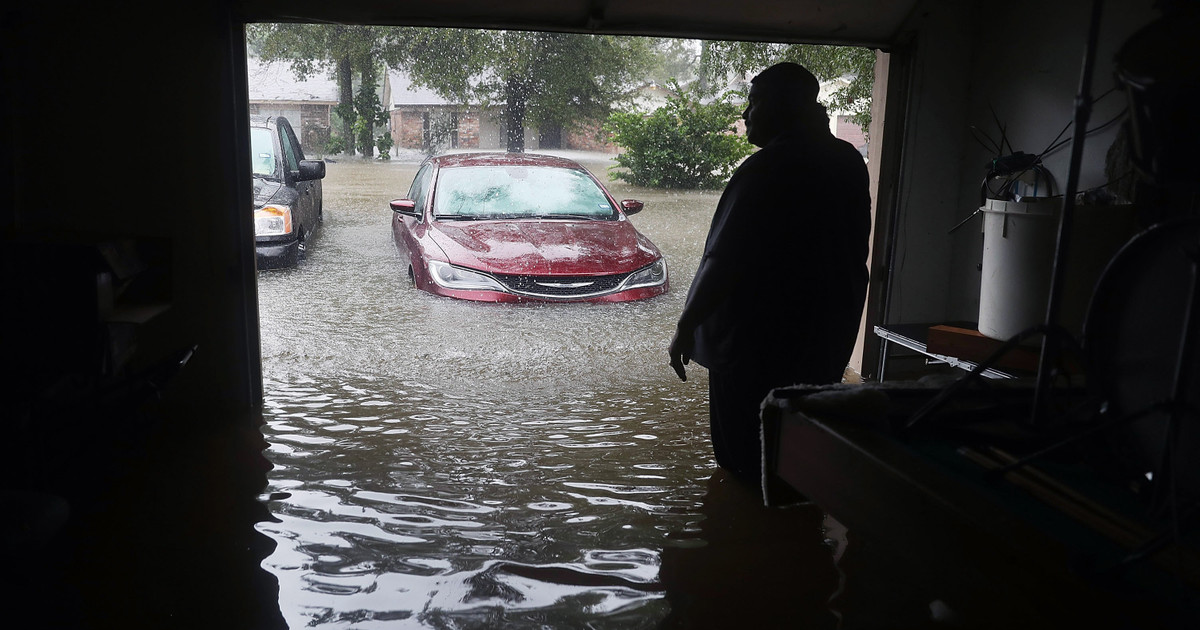Republicans pressured to “clarify” state abortion ban

steady.substack.com
Women in Texas Are Dying
Republicans pressured to “clarify” state abortion ban
Dan Rather
and
Team Steady
Mar 19, 2025

Credit: Getty Images
The Supreme Court’s decision to overturn
Roe v. Wade has faded from the headlines, but the consequences of the ruling — sometimes deadly — are still playing out, especially here in Texas.
Three years later, it’s horrifyingly obvious the Texas legislature went too far. Way too far. In their zeal to stop abortions, the Republican-controlled legislature seems to have forgotten about the mothers. Women in the state have been refused treatment, some even dying since a total abortion ban became law.
So now, it is ironic to say the least to hear legislators — Republicans — admit that their total abortion ban needs “clarification.” Two staunch anti-abortion legislators have put forth a bill to clarify when a doctor can perform an abortion.
The state’s abortion ban is contradictory and confusing. It allows for an exception only when patients have “a life-threatening physical condition.” The doctor performing the procedure must provide “the best opportunity for the unborn child to survive.”
With language this vague, but legal penalties exceptionally clear — performing an abortion is a second-degree felony, punishable by up to 20 years in prison and a $10,000 fine — doctors have erred on the side of the fetus. They have hesitated or simply failed to act to save a woman’s life out of fear of prosecution and professional ruin.
This week, Republican State Representative Charlie Geren put forth the Life of the Mother Act in the Texas House. A similar bill was introduced in the state Senate. While the new law wouldn’t expand abortion access, it would spell out the circumstances in which doctors are allowed to provide abortion: if the woman “has a physical condition” from pregnancy that puts her “at risk of death or poses a serious risk of substantial impairment of a major bodily function unless the abortion is performed or induced.”
When the Supreme Court overturned
Roe, many states imposed partial or total abortion bans. Texas is among the 12 states that passed a total ban. The law is called the Texas Heartbeat Act, because no abortion, even one to save a woman’s life, can be performed if a fetal heartbeat is detected.
Waiting for a fetal heart to stop beating in a miscarrying woman is dangerous and can be deadly. Waiting exposes the woman to infection, which often develops into sepsis. Sepsis is a body’s extreme reaction to an untreated infection. It can cause kidney failure, brain damage, and worse. For some Texas women who have miscarried, it has caused death.
Geren, a committed anti-abortion voice, said that clarifying Texas’s ban is the “most important” legislation of his 24-year career.
“Too many women have suffered. Too many have died,” Geren said at a news conference this week. “If one has died it’s too many, and more have. I have friends whose wives can no longer conceive because of the problems they went through with their first pregnancy and the delay that doctors face in addressing the problems.”
Not to diminish Geren’s recent sentiments, but a near ban was put in place in 2021 and a total ban in 2022. Where has he been for the ensuing years as women in his state were needlessly dying?
Geren may have friends who have been affected by the ban, but because of great investigative work by ProPublica, we now have more than anecdotal evidence. In an article titled “Texas Won’t Study How Its Abortion Ban Impacts Women, So We Did,” the independent media organization looked at seven years of data to determine how the ban has affected maternal health in Texas. The news isn’t good.
The state does have a maternal mortality review committee, but to date it has failed to do its job. There has been no examination of death rates since the ban went into effect.
ProPublica found that, since the ban, incidence of sepsis has increased by more than 50% for women who had second-trimester miscarriages. In these cases, the standard of care is to evacuate the uterus. If doctors have to wait for the fetal heartbeat to stop, the woman is often exposed to deadly bacteria.
ProPublica also counted 120 deaths of hospitalized pregnant women, a massive increase. One of those women was Josseli Barnica, a 28-year-old mother who had a miscarriage at 17 weeks pregnant. Doctors told her she couldn’t get treatment until they could no longer detect a fetal heartbeat. So they waited. She died of sepsis. More than a dozen medical experts who reviewed her case told ProPublica Barnica’s death was preventable.
Doctors and other medical professionals warned that women would die because of abortion bans. “This is exactly what we predicted would happen and exactly what we were afraid would happen,” Dr. Lorie Harper, a maternal-fetal medicine specialist, told ProPublica.
Lest you think Texas is getting soft, the state’s attorney general, Ken Paxton, has made his first abortion provider arrests this week. After a monthlong investigation, he arrested a midwife and her assistant. But sadly, a pregnant woman turning to a midwife for an abortion is also what was predicted would happen if abortion was banned.
ProPublica’s excellent reporting has shed light on the problems in Texas. While the clarifying law will help save some women, 11 other states have total bans, and an additional 10 have very restrictive laws on their books. The women in those states are also suffering at the hands of legislators who think they know better than doctors.
To support my team’s efforts to protect our democracy through the power of independent journalism, please consider joining as a paid subscriber. It keeps Steady sustainable and accessible for all. Thank you.
No matter how you subscribe, I thank you for reading.
Stay Steady,
Dan



www.nytimes.com
 or negligence??
or negligence??

www.census.gov





www.census.gov






www.businessinsider.com